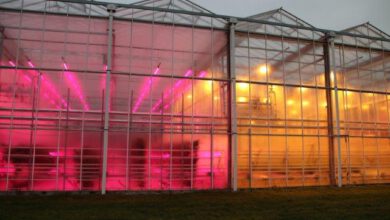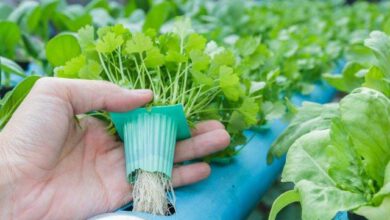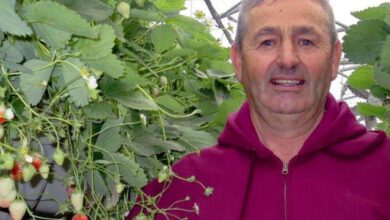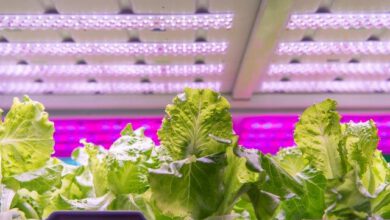Future Crops Brings Vertical Farming Closer to the Land
New agri-tech vertical farm system is reshaping agriculture to sustain the growing population with high-yield crops
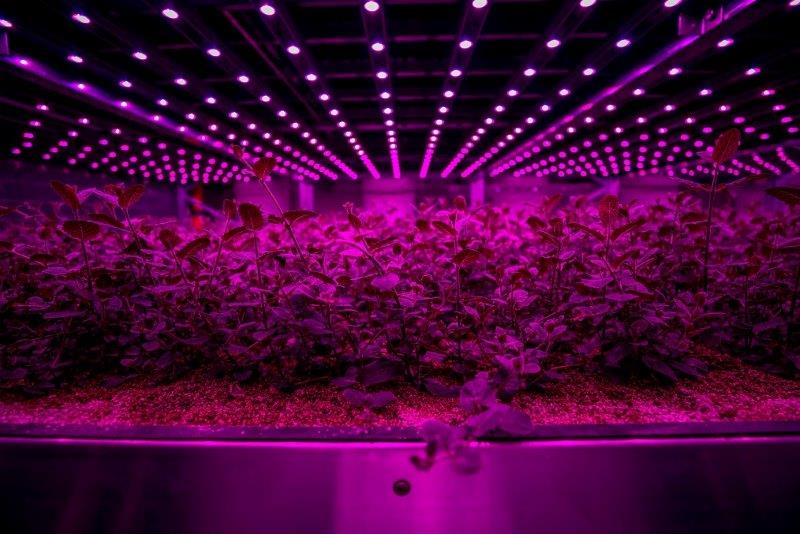

The challenges posed by urbanization and the gradual dwindling of arable land is driving more farming indoors. The agri-tech start-up Future Crops, Ltd. has developed the first indoor vertical farming system that grows its crops in a unique soil substrate composition, bringing this nascent farming concept closer to home and to the earth.
The Israeli-Dutch venture has established a fully automated 8,000m2 indoor vertical farm in Westland, Netherlands, the “greenhouse hub” of Europe. The facility, towering nine stories, is powered primarily by solar energy, and combined with high precision agricultural technology. It can provide optimal growing conditions for a broad spectrum of leafy greens and herbs.
Future Crops CEO and co-founder Gary Grinspan attests that this method of cultivation not only delivers quality fresh produce, it enables the produce to reclaim its original characteristic taste and aromas that have been degraded following decades of pesticide use and industry pressures to place the focus on boosting output. Future Crops’ advanced technology maximizes yield per area unit in comparison to traditional agriculture, with no compromise on quality.
Plant Whisperer
The company utilizes innovative data-driven technology to tailor the ideal environmental conditions for crops to thrive within a highly controlled, automated structure. The system controls dozens of parameters of growth conditions, including humidity, temperature, and lighting to create optimal climatic conditions to suit each crop.
Grinspan likens its technology to a “plant whisperer.” “Plants will draw what they need from nature,” he explains. “Our team of agronomists are able to ‘listen’ to each plant to determine its individual needs in real time—how much ‘sleep’ versus light, the type of light, air quality, how much water, specific nutrient needs, etc. The plants ‘respond’ in their own unique language as expressed via small nuances such as changes in morphology, shape, size, and color. Via these signals, our algorithm can be primed to provide the plants precisely what they need at each stage of their life cycle.”
The crops are grown in a soil-based substrate. “We composed a unique nutrient enriched soil-like recipe as the bed for growing all our produce to keep it as close to what nature intended” continues Grinspan. “We learned from nature and did not want to change its rules. Our system can consistently grow a comprehensive range of herbs and leafy microgreens throughout the year, completely free of any pesticides or biological substances, and with zero dependence on climate conditions.”
Rethinking the agricultural value chain
Experts globally warn of food shortages due to a growing population forecast to exceed 10 billion over the next decade. Lack of availability of fertile land dedicated to growing crops will soon strain the planet. This is further compounded by climatic instability which threatens many cultivars. These trends have challenged the agricultural industry to rethink the -farming paradigm in a way that allows greater productivity in a more sustainable manner, and with less use of resources. Moreover, the combination of environmental, logistical, and geopolitical bottlenecks is spurring initiatives to bring food sources closer to home.
High-tech vertical farming offers a means of achieving voluminous crop outputs in limited space. Crops grown in the Future Crops vertical farm have demonstrated a longer shelf-life and reach full growth in significantly less time, enabling multiple growth cycles. This significantly shortens the farm-to-table supply chain by weeks, including reducing food mileage.
Start-Up secures US$30M in first funding round
Following a family tragedy, Gary Grinspan left a long corporate career within major CPG food companies, including PepsiCo and Unilever. Wanting to devote his energies toward bettering the world, he established Future Crops.
The company was founded in 2016, in conjunction with the Israeli Agricultural Research Organisation (ARO) and A&F Ventures, a private equity arm run by the Lerman Family, leaders in the American steel industry. The company secured US$30M in it first round of funding, providing a major portion to advance its efforts to transform the agricultural value chain.
The company sealed a joint R&D venture with Nativ Dudai, PhD, and David Haimovitch, PhD, both of the Israeli Agricultural Research Organisation Institute (ARO), where Dudai heads the medical and aromatic plant unit.
“Food system resilience is at the core of Future Crops’ vision and the key to building a better future for generations to follow,” says Dudai, PhD. “It’s time to reevaluate the way we use our natural resources, to deliver clean, sustainable crops and ensure food security.”
Future Crops currently runs supply contracts with a leading grocery retailer in the Netherlands and with additional retailers in Europe.
Contact us for more info at:
Future Crops
Susanne Mosmans
Business Unit Director
Info@future-crops.com
www.future-crops.com

